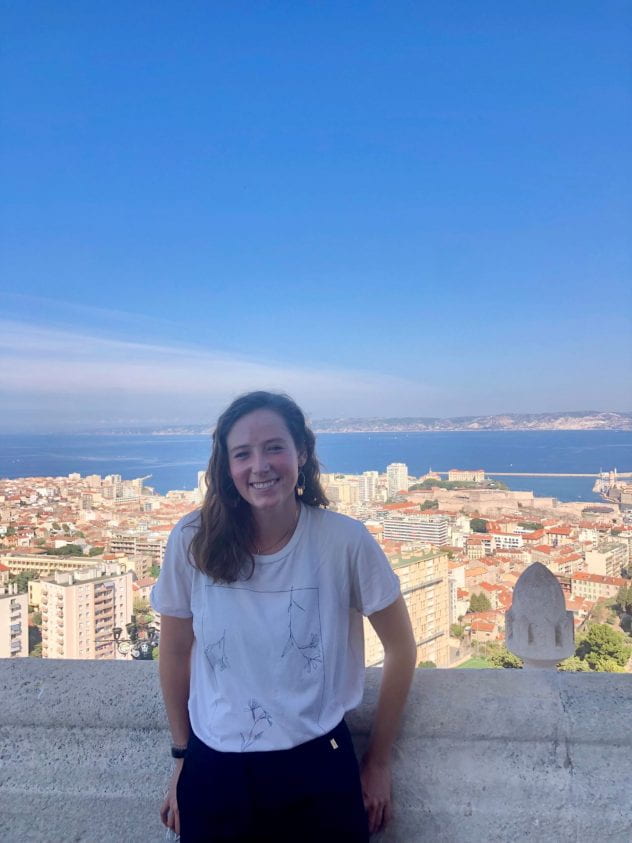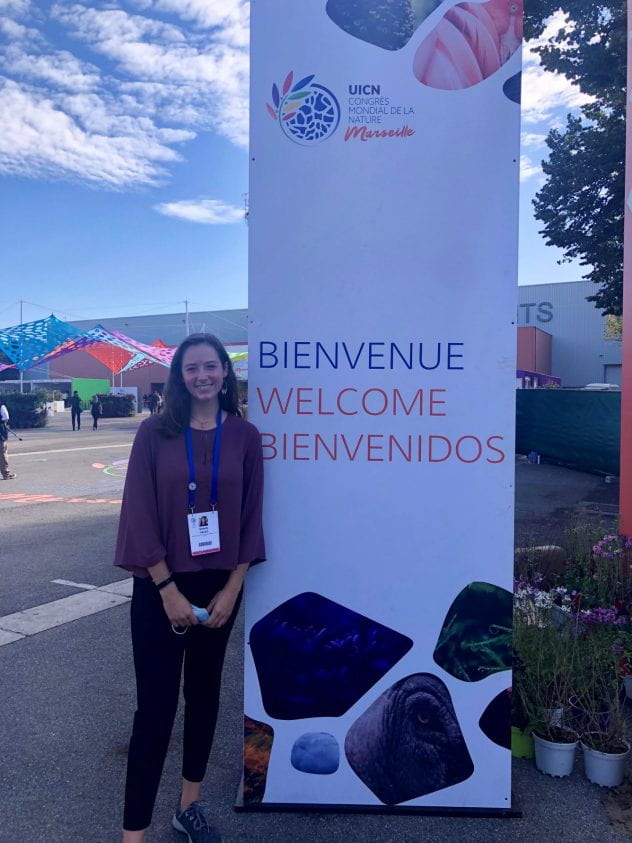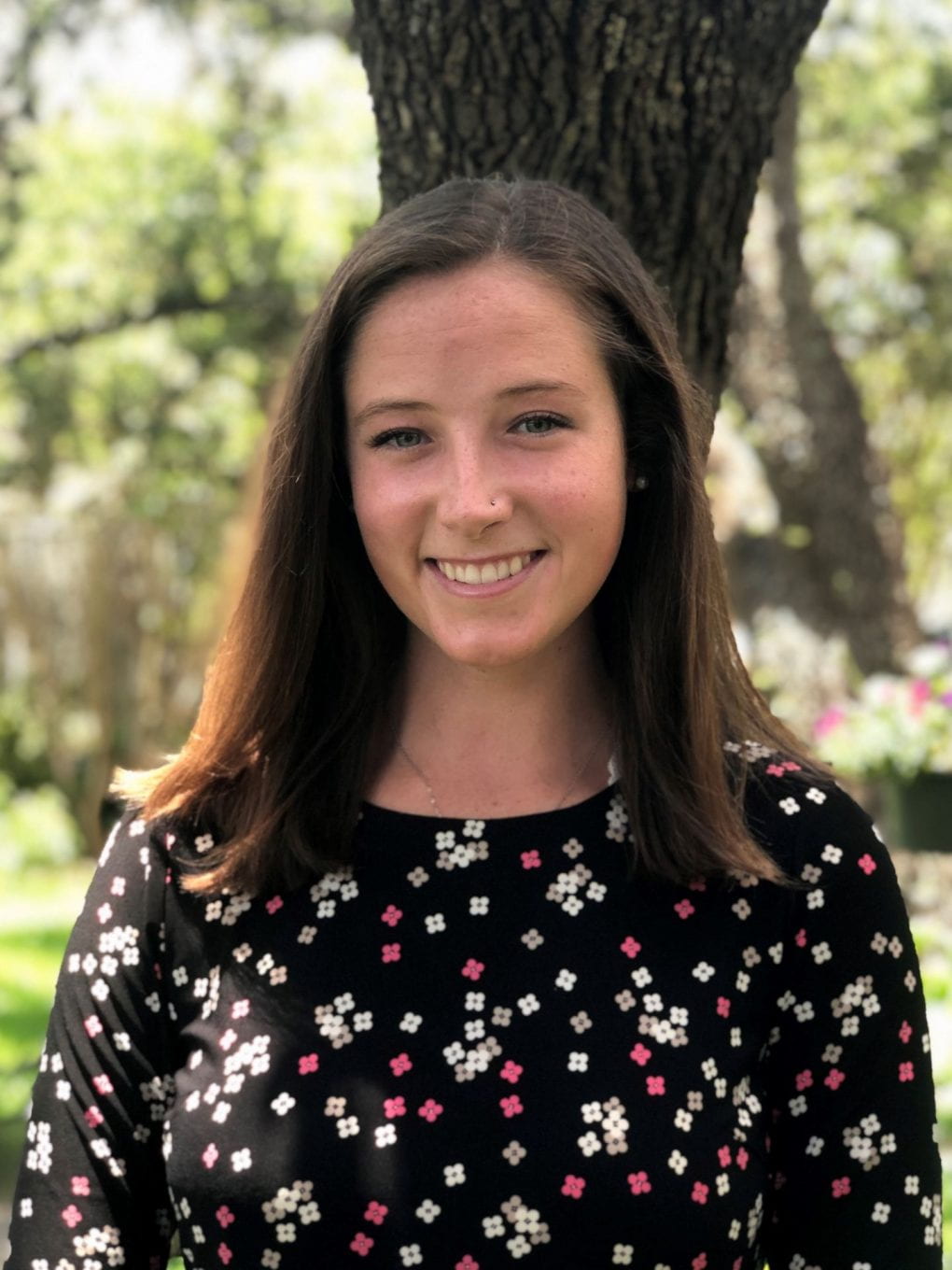Each year, we spotlight our Highland Capital Management Tower Scholar Seniors. We enjoy hearing about their journey through the program and how their perspective on the importance of sound policy evolved when combined with their own academic interests. This year, we asked our incoming and current scholars to interview the seniors and were delighted by the conversations captured.
Lily Derr, ’24 interviewed Isabelle Galko, ’24 about her time as a Tower Scholar,
Why did you apply to be a Tower Scholar?
When I came to SMU, I was a pre-med student with an interest in health policy and women’s health policy. Specifically, I was interested in how policy could be used to protect health rights. Due to that interest in policy, I decided to apply for the Tower Scholars Program.
However, since high school, I was also interested in environmental issues. Now, environmental policy is my focus. I actually figured that out in my Tower Scholars interview, funnily enough. I came into that interview thinking I would discuss health policy and wound up talking more about the environment. For example, in response to one question, I talked about implementing better recycling programs at SMU.
 Was being a Tower Scholar what you expected?
Was being a Tower Scholar what you expected?
I really did not know what to expect from the Tower Scholars Program. I had not heard much about it before applying. Additionally, I studied abroad in New Zealand for my whole sophomore year, so I did not even take a political science or policy class at all until last year, my junior year.
Since then, Tower classes have not necessarily been what I expected, but they have all been great introductions to policy. Now, I work for the City of Dallas in a research-focused role. Specifically, I am working on the Climate Action Plan for Dallas. Through this opportunity, I have learned about things such as urban agriculture and weatherization. My main project, however, focuses on community solar and making solar energy more equitable and accessible.
What has surprised you about the Tower Scholars Program?
What surprised me the most about the Tower Scholars Program is how closely the Tower students work together. My cohort worked for Hunt Oil and Gas and it was fun to see different perspectives and apply that to natural gas and energy policy.
How did you become interested in policy?
I would say that I really just “fell into it.” I have always been interested in how policy can shape people’s lives, especially environmental policy. I like to focus on how policy can help mitigate the effects of climate change. It is also interesting to see how different communities are affected differently by climate change and how policy can play a role in responding to each unique situation.
Additionally, this summer I got a Richter Fellowship where I went to Louisiana and did research with indigenous communities there. It was shocking to look at how policy has failed that community in the past. During that fellowship, I focused on climate change policy. Many policies in that Louisiana area have ignored the needs of that community, or even harmed it, so I worked with the local community to try to amend that. That fellowship made me even more interested in environmental policy. Now, I want to go to graduate school for environmental policy and make it my career.
How did you become interested in the environment and climate change?
My family has always been very outdoors-oriented. When I was growing up, my family moved to Australia for a few years. In Australia, I ended up having so many incredible experiences in nature, like snorkeling in the Great Barrier Reef. When I came back to the United States, I started learning about all of our environmental problems, including the bleaching of that same Great Barrier Reef that I had seen with my own eyes. This was a real turning point for me. From there, I learned about marine pollution and ended up doing an environmental awareness campaign. See, the whimsical side of me wants everyone to be able to have amazing experiences in nature. Then, such experiences would help people understand the importance of protecting nature. If people really understood that, then policy could be more easily advanced to combat environmental issues. You can always educate people and have them make individual changes, but in the grand scheme of things large scale policies are what really make a difference.
Tell me about your experience at the International Union for Conservation of Nature
(IUCN) World Conservation Congress. What did you do there? What type of policy did you discuss? How did you find that amazing experience? Have you had any other similar experiences?
Originally, I was supposed to go right after studying in New Zealand my sophomore year. New Zealand is actually where I submitted my proposal. I had worked on conservation projects in the past, so I talked with some friends about doing a presentation about women’s leadership in policy and conservation projects. From there, I decided to submit a proposal.
I was accepted to work with the Commission on Education and Communication. However, due to the pandemic, the event was postponed and rescheduled for this September 2021. Although the others in my presentation group could not go this September, I went and did the presentation by myself. It was amazing. Within the Commission on Education and Communication I worked on the #NatureForAll initiative, increasing access to nature. The more that people love nature, the more people will want to conserve and protect the environment. This initiative specifically spans educators and instructors, journalists, etc. It is a very youth-centered program for 18-35-year-olds. The whole time I was there, I had my presentation and then I was working on spreading awareness for #NatureForAll and bringing in more educators to the commission. It was a truly incredible experience.
Besides that conference, I also went to a conference in Indonesia my freshman year. There, I did a presentation about ocean conservation and coral reefs. Then, this summer, I went back to Indonesia and learned Indonesian through a Critical Language Project. It was so cool to get to learn the language and then talk to people in their native language about policy. I even got to give a presentation in Indonesian about coral reefs. Now, I want to do work in this area of the world in the future.
What are your post-graduation plans?
Right now, I have been applying to a lot of different things, so it really depends on what I get accepted in to and how I feel once I have my decisions. However, everything is centered around environmental policy. I applied to many programs outside of the United States, including many programs in Europe and the United Kingdom. However, some of the programs are in the United States.
Additionally, I am applying for a Fulbright scholarship to teach English in Indonesia.
What is your best memory from the Tower Scholars Program?
Most seniors would have said D.C., but unfortunately I did not get to go. However, working for Hunt Oil and Gas was definitely my favorite part. It was such a great opportunity to work with the Tower Scholars on this project. We are all from such different backgrounds and no one is an expert on the topic, so we had a unique work experience. My environmental science background gave me an interesting and different perspective. This was also a good exercise in talking to people without a science background about climate change. The class was so fun and the end presentation was quite impressive. It was a great transition to now working with the City of Dallas.
Working with an oil and gas company was also personally useful, because it broadened my perspective on this topic which used to seem so straightforward to me. I understand that the energy we use right now is very centered on fossil fuels and so we cannot just switch to completely renewable sources. We also cannot just cut oil companies out of the conversation. Therefore, the future of renewable energy must be a combination. For example, use renewable energy as much as possible, but if that is not possible, tap into fossil fuels. See, this experience was not only great because I got to work with Tower Scholars, but also because it changed my perspective personally on fossil fuels, energy, and oil and gas companies.
Do you have any advice for future Tower Scholars?
First, get to know the other people in your Tower Cohort well because you will work with them a lot. Getting to know them is also helpful because that way you get to learn about all of the different types of policy they are studying, not just the type you are interested in. Being friends with the other Tower Scholars has helped me learn about different aspects of policy. Now, I can focus on environmental policy, but also hear all about what the other Tower Scholars are studying. The Tower Scholars are also great for networking. Everyone is looking into different things and you can help each other out. Plus, everyone in the Tower Program is so accomplished, and they are representative of people who will go far. Plus, they are all really great people!
Get to know your professors, too! They can be a great resource and are so insightful.
Finally, start early on applications, have many people read them, and apply to anything and everything you can!
